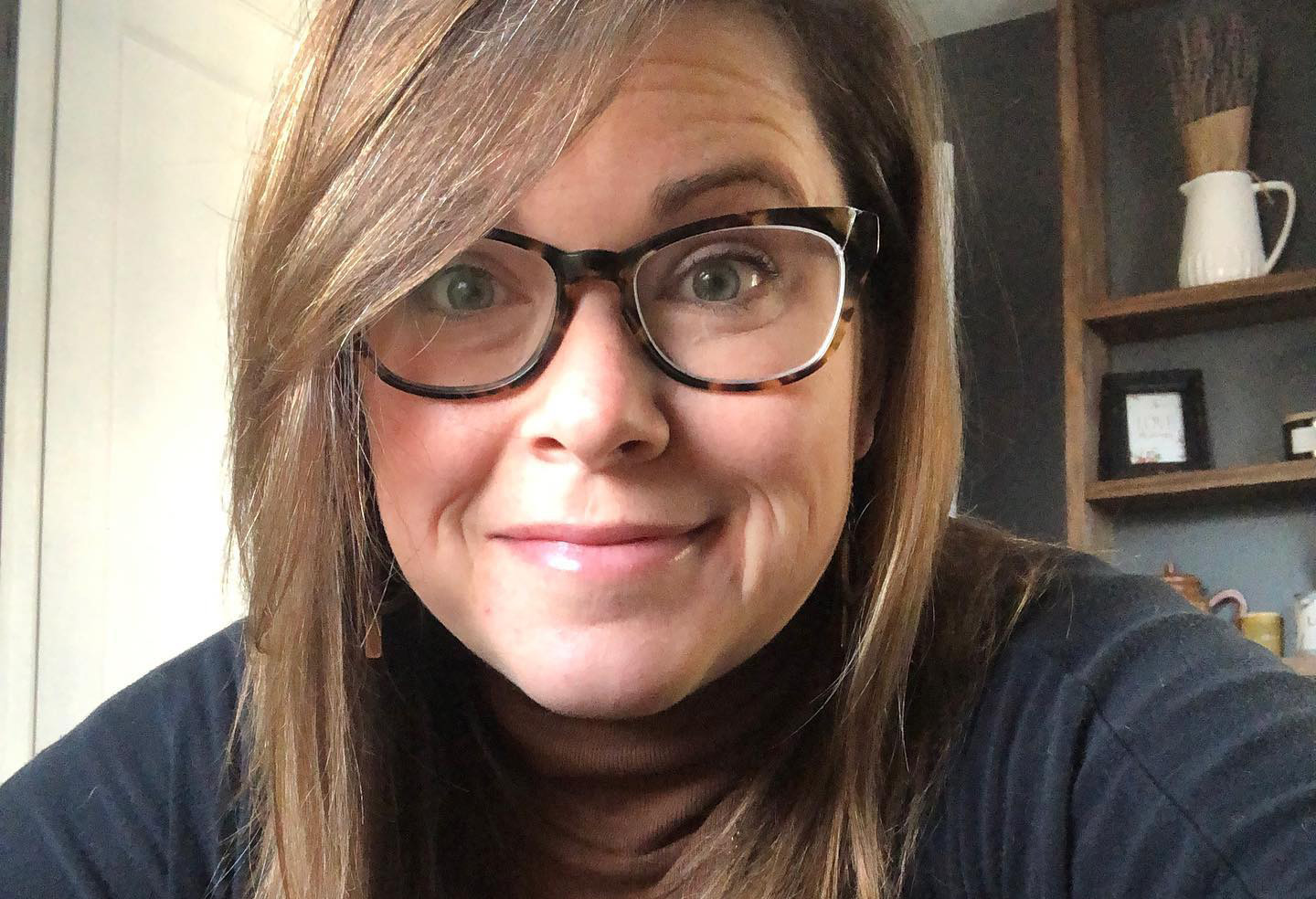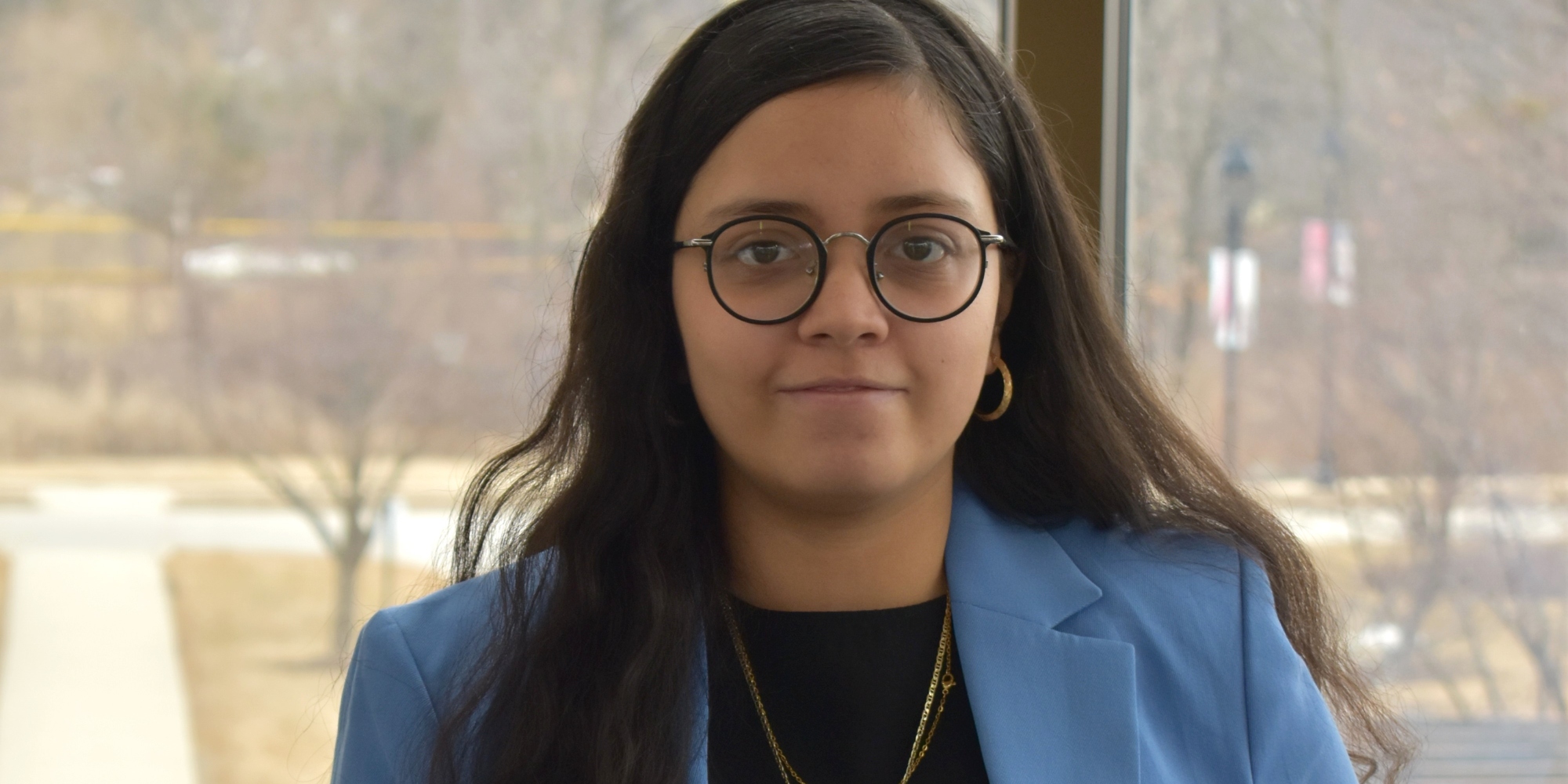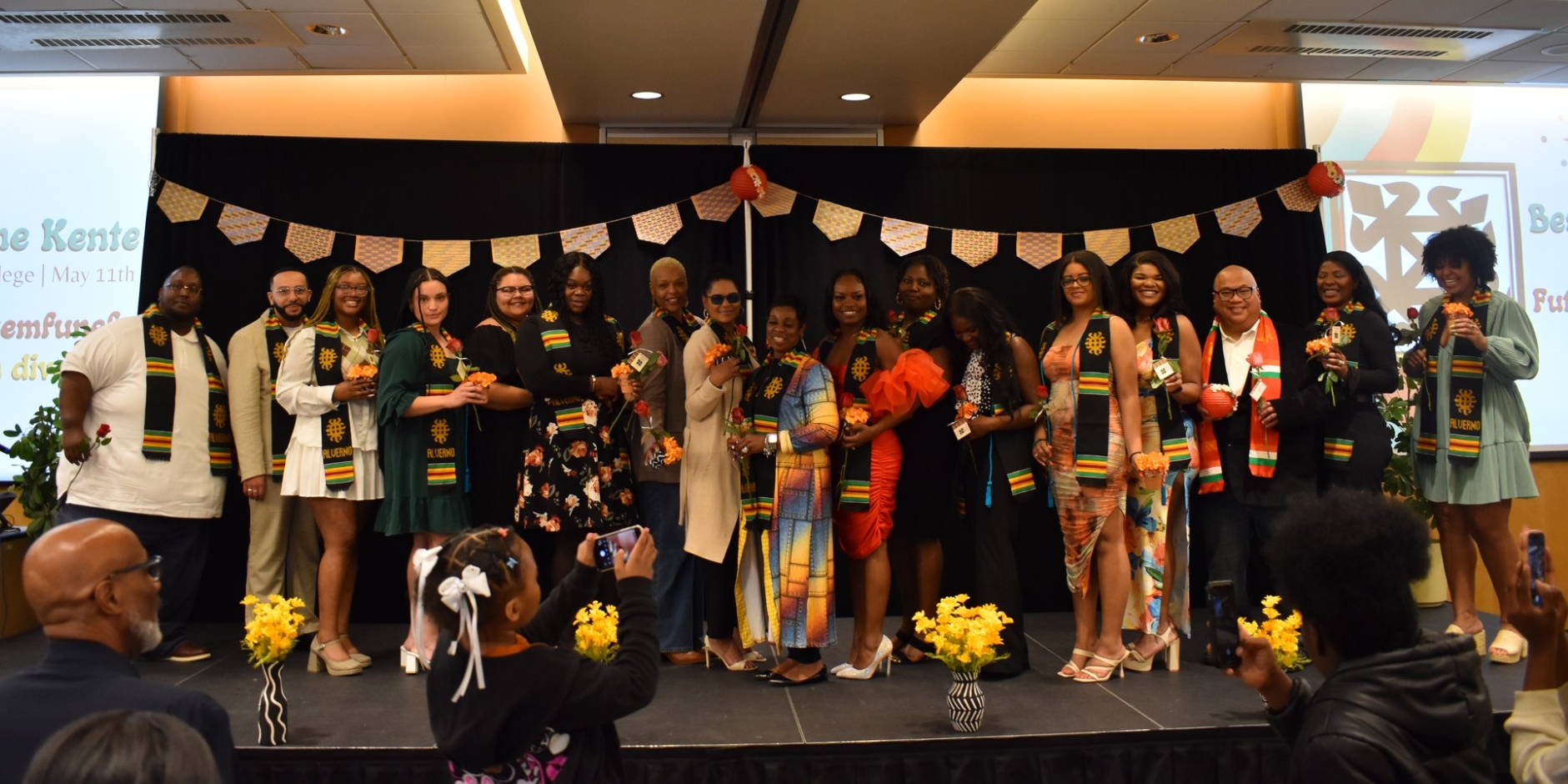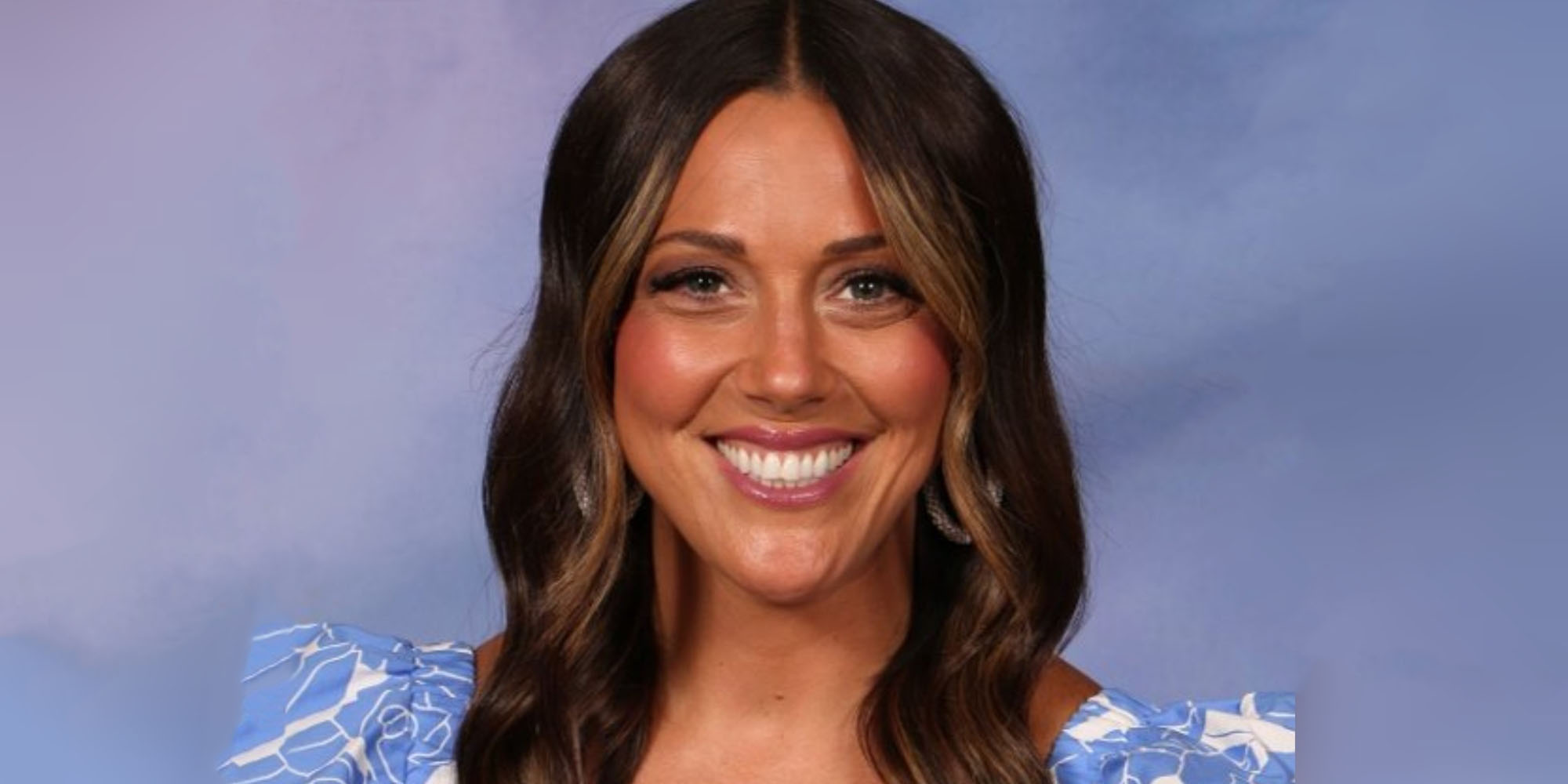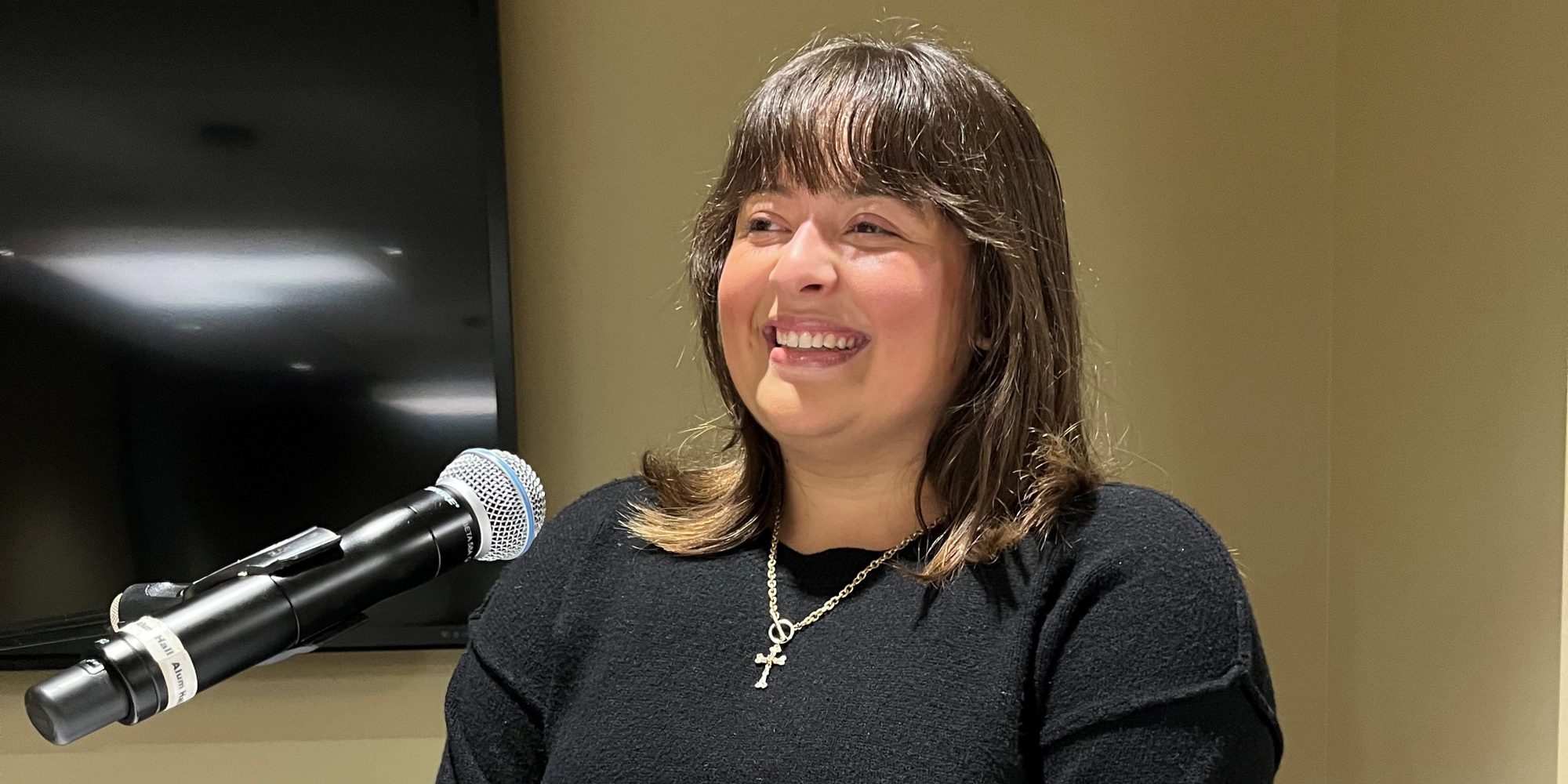Empowerment. Authenticity. Healing.
These are the goals of communication and higher education, and they underpin the mission that Lindsey Harness, PhD, embraces in her work at Alverno.
Harness, an associate professor of communication and technology, recently took the helm of Alverno’s Research Center for Women & Girls (RCWG). Founded in 1970, the RCWG’s outreach efforts are geared toward improving the lives of women and girls and empowering them with the knowledge and skills to thrive.
“I hope to continue the underlying goal of RCWG by conducting research about present-day needs for women and girls, using that research to be part of important conversations,” Harness says. “I believe in conducting research that directly impacts human lives in a way that helps them live authentic and empowered lives, and I believe that intentional communication is a way to heal our world. So, I hope RCWG will be a resource for empowering research that promotes courageous communication and healing.”
This fall, the RCWG hosted the third annual Girls Summit, which convened girls and women to explore mental, emotional, physical and financial wellness. Among the highlights for attendees and Harness was the keynote speech from 13-year-old Ayanna O’Kimosh, a three-time national boxing champion who advocates for missing and murdered Indigenous women and girls.
“I had the opportunity to visit Ayanna’s family and her at the Menominee Indian Boxing Club where she trains. As I helped her prepare for her speech, I was in awe of Ayanna’s courage and wisdom,” Harness says. “She taught me a lot about what it means to be a person who identifies as a teenage girl and Indigenous, and she helped me realize that I have so much more to learn.”
When and why did you decide to become a teacher?
“Originally, I wanted to own a business that combined organizational consulting, event planning, public speaking coaching and motivational speaking. So, I majored in organizational communication and minored in business. After shadowing a motivational speaker and serving as an event planner for my senior internship, I questioned my original career goal. So, I continued my goal of pursuing an advanced degree. During my master’s program, I was offered a teaching assistantship that allowed me to teach stand-alone public speaking classes. While teaching my first semester teaching, I had an epiphany: Teaching is a combination of motivational speaking, consulting, and coaching plus it allows me to continue learning. Voila!”
As a professor at a women’s college, what do you hope to empower your students to achieve?
“I want to empower students to realize that their ‘voice has volume’ (Thank you to our Career Studio director, Dr. Cheryl Moore, for this poignant phrase). I want to help them learn how to identify the communicative resources they have available to be heard within spaces where they might not have the traditional resources of power. I want them to know that they matter just as they are, and that they are worthy of living a life of their own design.”
How did distance learning come to be a professional interest? How did this area of expertise help you (and your colleagues and students) adapt during the pandemic?
“In my PhD program, after four years, a graduate student loses their teaching assistantship. I was still working on my doctorate, and I needed a way to pay the bills. So, I had a decision to make. I could either move back home to Arkansas or I could make my own way. After some bumpy months, I took a chance and applied for a job as a full-time learning technology consultant at UW-Milwaukee. I believed that I could make an argument for how my past experiences and philosophy of communication & technology prepared me for the job. It was a long shot, but I wanted to try. I got the job, and the rest is history!”
“My experience with distance learning helped me stay calm during the pandemic (at least where teaching was concerned). I did not have a significant learning curve, which is a gift during a time of such uncertainty. My hope is that I used the energy I had available to ease the anxiety and burden for some of my colleagues and students. My heart goes out to everyone who was trying to learn how to transition to online teaching while existing within a crisis. That is a massive undertaking that requires more emotional and cognitive labor than words can ever express. I was and am very adamant about there being a significant difference between ’emergency remote teaching’ and ‘intentional and planned distance learning.'”
What is your favorite thing about teaching at Alverno?
“Purpose, hope, alignment. My life feels like it has purpose when I am teaching/mentoring/coaching, and I am also learning! Life is too short to have a job that does not align with one’s values. If I am going to spend most of my life working, it better be something that speaks to my soul and reflects my worldview.”
What have you learned from Alverno students?
“I have learned about the courage it takes for women to circumvent the structural barriers and inequities that hinder women from obtaining an education. Alverno women inspire and amaze me because they are tenacious in their pursuit of bettering their lives on their own terms. I love that.”
This article appears in the winter 2022 issue of Alverno Magazine.

